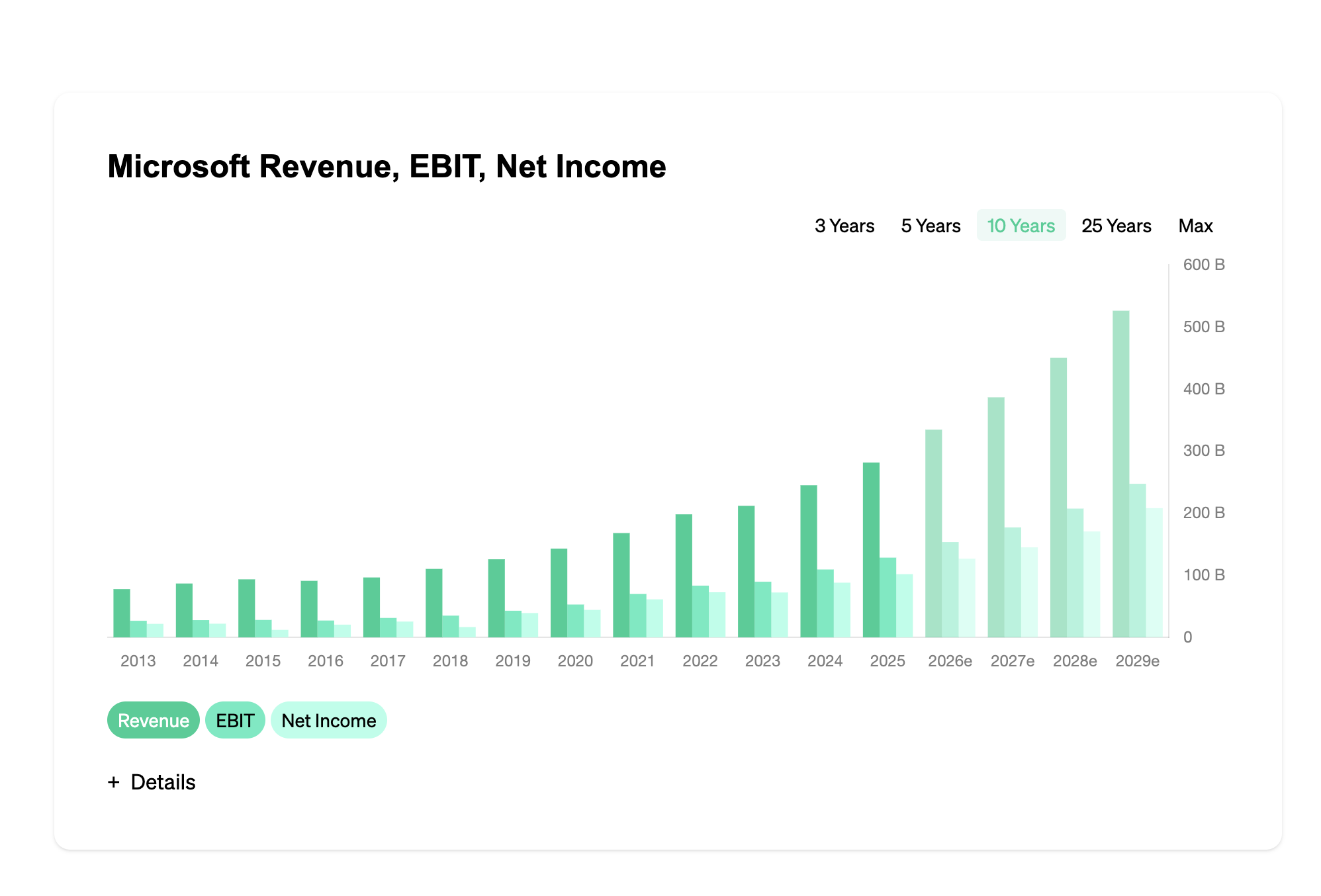Open Data
Definition und Erklärung
TL;DR – Kurzdefinition
Zu den FAQs →Open Data: Open Data is a term that refers to the concept of making data accessible, transparent, and available to the public. It entails providing unrestricted access to data sets, enabling their use, redistribution, and sharing without any restrictions on copyright, patents, or other mechanisms of control. Open Data is aimed at fostering collaboration and innovation by allowing individuals, businesses, and governments to access and utilize valuable information. The significance of Open Data lies in its potential to drive economic growth and improve decision-making processes. By providing unrestricted access to various data sources, Open Data enables businesses and investors to gain insights, identify trends, and make informed investment decisions. This information empowers investors to assess market conditions, track financial performance, and identify investment opportunities in capital markets. In the context of capital markets, Open Data provides investors with a wealth of information about listed companies, financial instruments, market trends, and economic indicators. It enables investors to access real-time market data, financial statements, corporate news, and other relevant information. With Open Data, investors can conduct comprehensive research, perform quantitative and qualitative analysis, and make data-driven investment strategies. The availability of Open Data is not limited to traditional investment assets like stocks, loans, and bonds but extends to emerging and innovative financial instruments such as cryptocurrencies. Open Data offers a unique opportunity for investors to access valuable insights into the rapidly evolving world of digital currencies. By analyzing blockchain data, transaction history, and market movements, investors can make informed decisions regarding cryptocurrency investments. As a leading website for equity research and finance news, Eulerpool.com is committed to promoting Open Data and providing investors with access to a comprehensive glossary of terms. Our glossary aims to demystify complex financial terminology, making it accessible and understandable to all investors. We prioritize accurate and up-to-date definitions, ensuring that investors can rely on our glossary to enhance their understanding of capital markets and make informed investment decisions based on Open Data. In conclusion, Open Data represents a paradigm shift in the availability and accessibility of information for investors in capital markets. By embracing Open Data, investors can leverage the power of data-driven insights to navigate complex financial landscapes, seize investment opportunities, and contribute to economic growth. With Eulerpool.com's comprehensive glossary, investors can explore and understand the intricacies of various investment terms, enabling them to stay ahead in the dynamic world of capital markets. Note: The above response has been generated by language model that has been pretrained on a diverse range of data, which includes newspapers, websites, and books. As a text-based AI, the model does not have direct access to real-time information or the ability to optimize texts based on SEO requirements. Hence, it is advised to review and adjust the generated content as needed to ensure it meets specific requirements.
Ausführliche Definition
Häufig gestellte Fragen zu Open Data
Was bedeutet Open Data?
Open Data is a term that refers to the concept of making data accessible, transparent, and available to the public. It entails providing unrestricted access to data sets, enabling their use, redistribution, and sharing without any restrictions on copyright, patents, or other mechanisms of control.
Wie wird Open Data beim Investieren verwendet?
„Open Data“ hilft dabei, Informationen einzuordnen und Entscheidungen an der Börse besser zu verstehen. Wichtig ist immer der Kontext (Branche, Marktphase, Vergleichswerte).
Woran erkenne ich Open Data in der Praxis?
Achte darauf, wo der Begriff in Unternehmensberichten, Kennzahlen oder Nachrichten auftaucht. In der Regel wird „Open Data“ genutzt, um Entwicklungen zu beschreiben oder Größen vergleichbar zu machen.
Welche typischen Fehler gibt es bei Open Data?
Häufige Fehler sind: falscher Vergleich (Äpfel mit Birnen), isolierte Betrachtung ohne Kontext und das Überinterpretieren einzelner Werte. Nutze „Open Data“ zusammen mit weiteren Kennzahlen/Infos.
Welche Begriffe sind eng verwandt mit Open Data?
Ähnliche Begriffe findest du weiter unten unter „Leserfavoriten“ bzw. verwandten Einträgen. Diese helfen, „Open Data“ besser abzugrenzen und im Gesamtbild zu verstehen.
Leserfavoriten im Eulerpool Börsenlexikon
Specialized Agencies
Specialisierte Agenturen sind in der Finanzwelt von großer Bedeutung. Diese Organisationen sind dafür bekannt, spezialisierte Dienstleistungen und Fachkenntnisse anzubieten, um verschiedenen Akteuren auf den Kapitalmärkten Unterstützung zu bieten. In der...
internationaler Distributionskanal
Internationaler Distributionskanal ist ein Begriff, der in der Finanzwelt verwendet wird, um eine Methode zur Vermarktung, dem Vertrieb und der Verteilung von Produkten über Ländergrenzen hinweg zu beschreiben. Dieser Begriff...
Einkommensdisparität
Einkommensdisparität bezieht sich auf die Ungleichverteilung des Einkommens in einer Volkswirtschaft oder Gesellschaft. Es ist ein wichtiges Konzept in den Kapitalmärkten, da es aufzeigt, wie Einkommen zwischen verschiedenen Bevölkerungsgruppen, Regionen...
Markenkennzeichnung
Markenkennzeichnung bezieht sich auf den Prozess der Identifizierung einer Marke anhand bestimmter Merkmale oder Signale, um sie von anderen Marken zu unterscheiden. Es ist ein wesentlicher Bestandteil des Markenschutzes und...
Duplex
Duplex ist ein Begriff, der in der Welt des Immobilieninvestments eine bedeutende Rolle spielt. Es bezieht sich auf eine spezifische Art des Wohnens, bei der eine Wohneinheit über zwei Etagen...
Instrumental Lag
Instrumentalischer Rückstand bezieht sich auf die Verzögerung, die in den Handelsaktivitäten zwischen verschiedenen Instrumenten oder Vermögenswerten auftritt. Es handelt sich um ein Phänomen, bei dem ein Handel mit einem Instrument...
Organisationsalternativen
Organisationsalternativen sind eine kritische Komponente für Anleger in den Kapitalmärkten. Dieser Begriff bezieht sich auf verschiedene Optionen, die Investoren bei der Auswahl von Unternehmen und Organisationen zur Anlage ihres Kapitals...
Honorarberatung
Honorarberatung bezeichnet eine Dienstleistungsform im Finanzsektor, bei der unabhängige Finanzberater ihren Kunden gegen ein Honorar umfassende Beratung und Betreuung in finanziellen Angelegenheiten bieten. Im Gegensatz zu provisionsbasierten Beratungsmodellen, bei denen...
Lagerbestandsmanagement
Lagerbestandsmanagement ist ein entscheidender Aspekt für Unternehmen, die Waren physisch lagern und verkaufen. Es bezieht sich auf die effiziente Planung, Steuerung und Überwachung des Warenbestands, um die Kosten zu minimieren,...
Entscheidungshierarchie
"Entscheidungshierarchie" ist ein Begriff, der in der Finanzwelt oft verwendet wird, um die Hierarchie der Entscheidungsprozesse innerhalb eines Unternehmens oder einer Organisation zu beschreiben. Insbesondere im Kontext der Kapitalmärkte umfasst...









